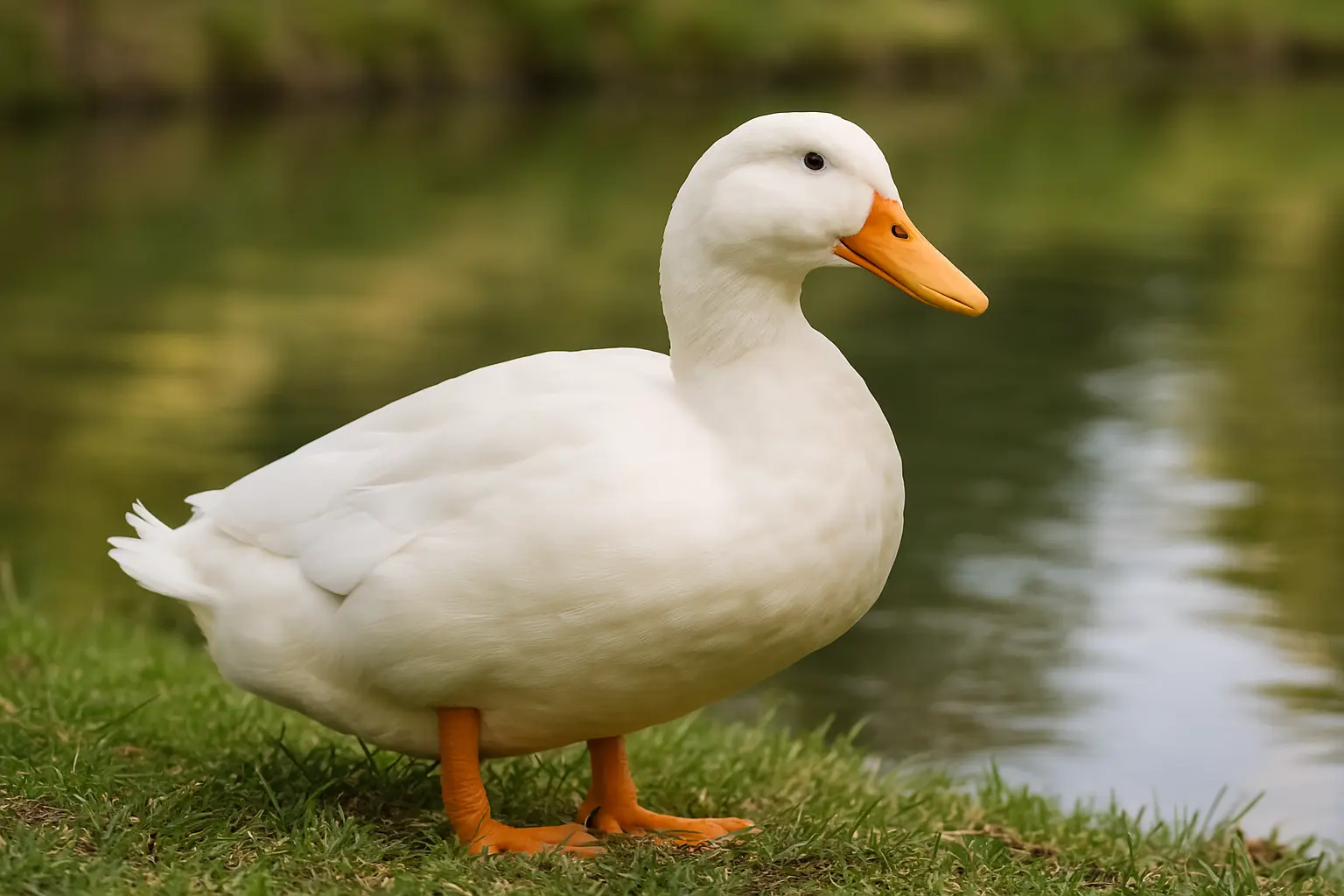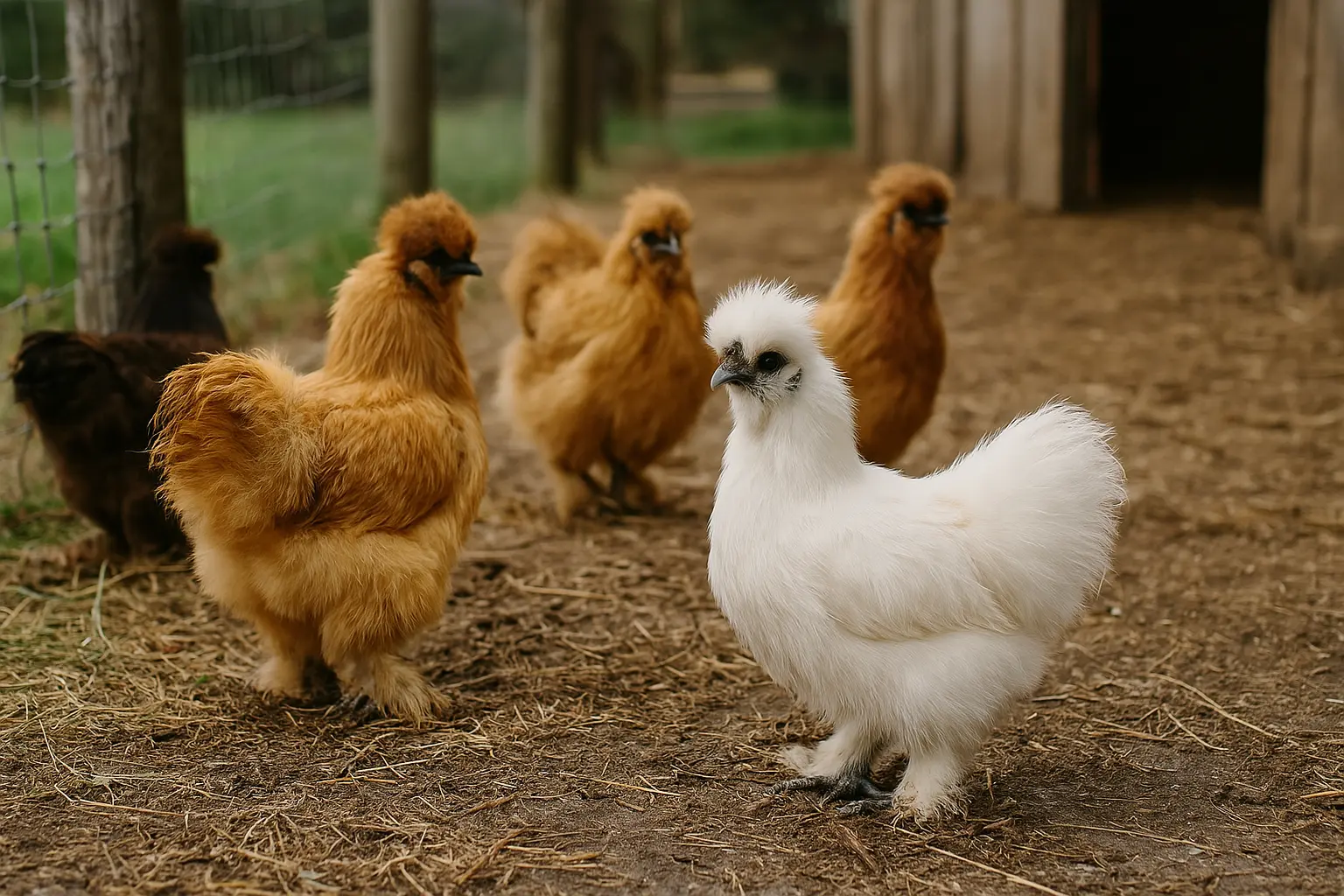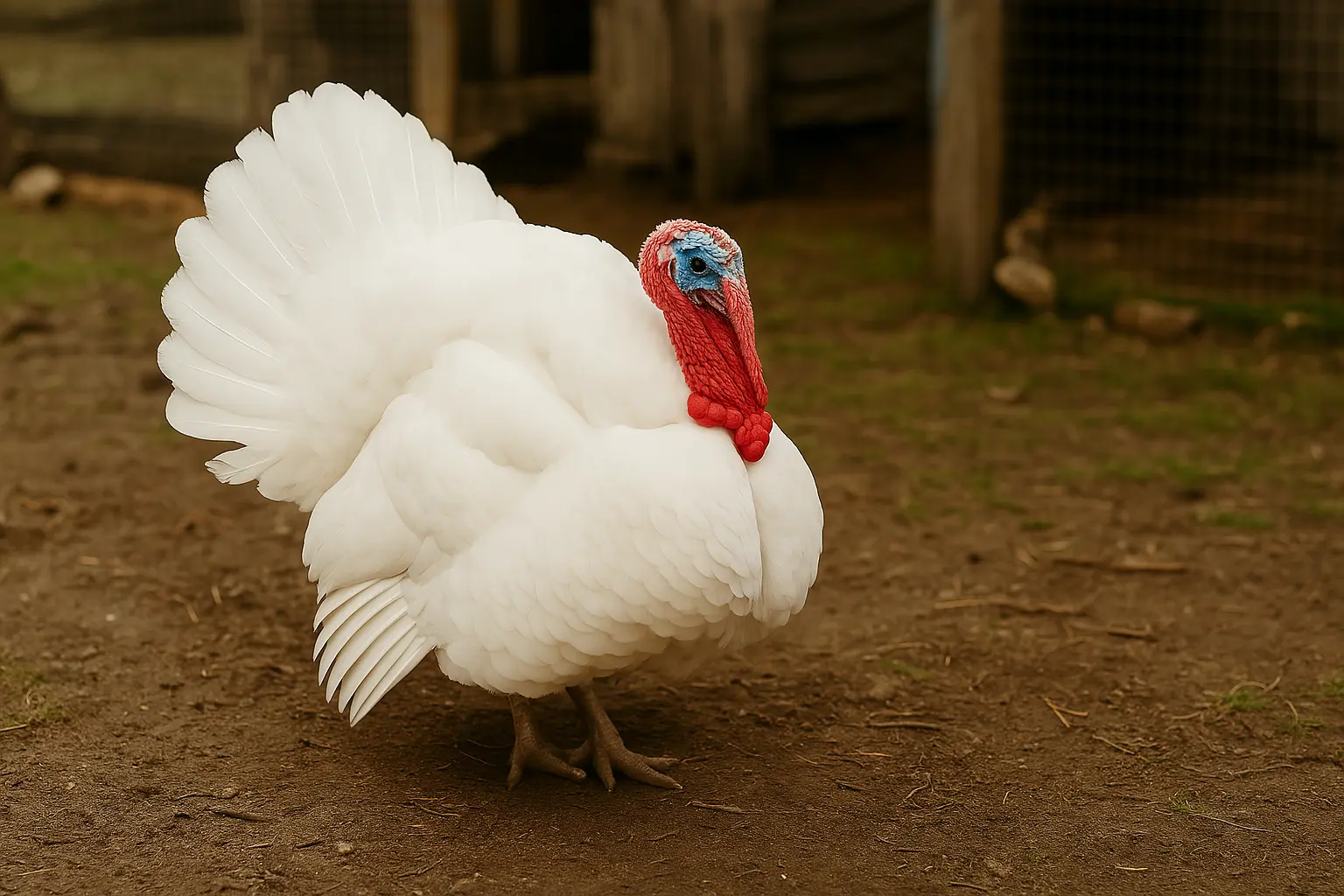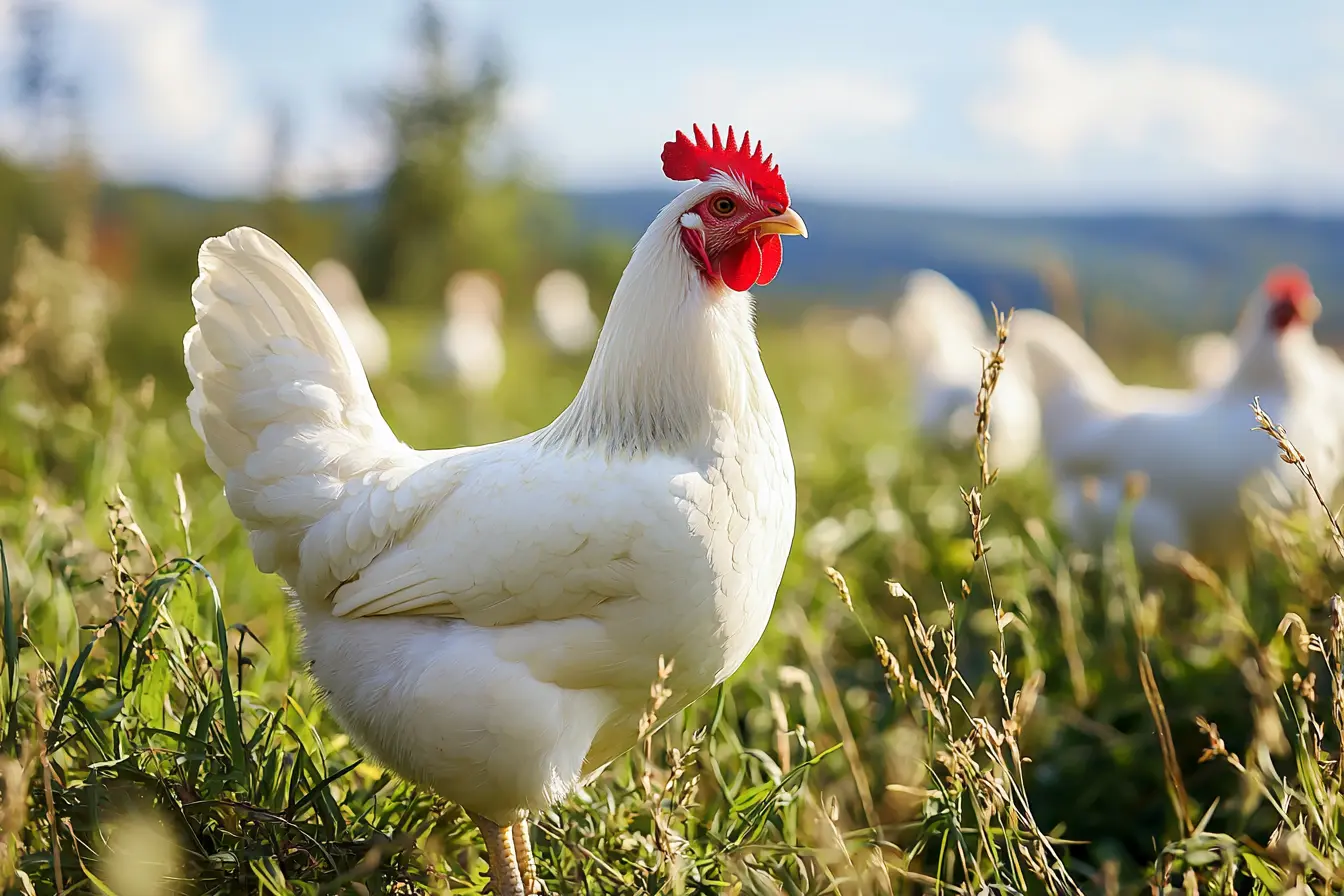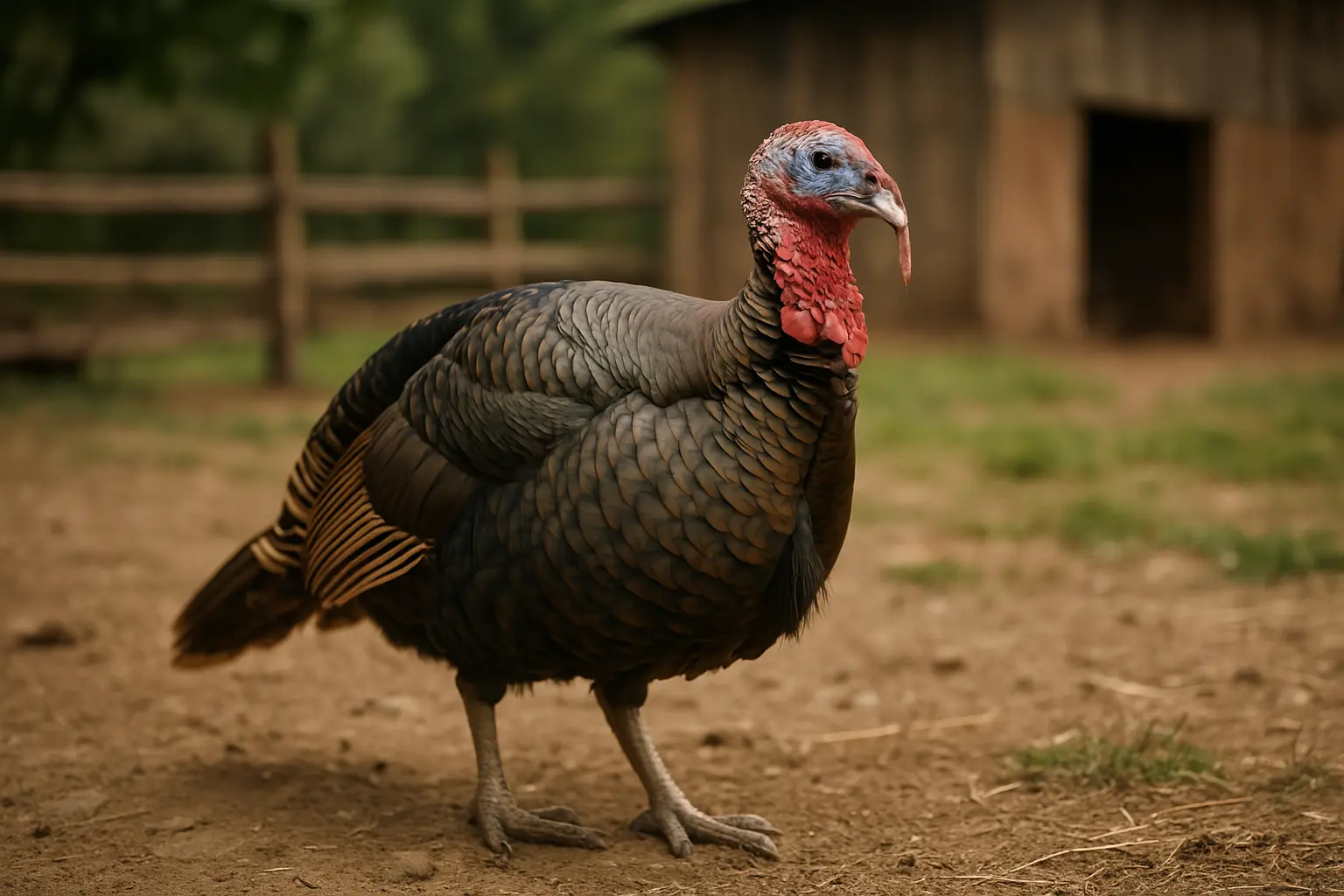
A Complete Guide to Keeping Bronze Turkeys
Bronze turkeys are a popular choice among poultry keepers in the UK, known for their stunning iridescent plumage, friendly disposition, and excellent meat quality. Whether you're considering raising them for their delicious meat, as ornamental birds, or simply for their charming personalities, Bronze turkeys can be a rewarding addition to your smallholding or backyard flock.
This comprehensive guide covers everything you need to know about keeping Bronze turkeys, including housing, feeding, health, and general care.
Introduction to Bronze Turkeys
Bronze turkeys are one of the oldest and most traditional turkey breeds, recognised by their shimmering bronze and black feathers. They are hardy, adaptable, and well-suited to the UK's climate, making them an ideal choice for both beginners and experienced poultry keepers.
Key Characteristics:
- Lifespan: 5-10 years with proper care
- Size: Large (toms weigh 10-15 kg; hens 6-8 kg)
- Temperament: Curious, friendly, and social
- Appearance: Bronze iridescent feathers with black tail bands and white wing tips
- Meat Quality: Highly valued for its rich flavour and texture
- Hardiness: Tolerant of UK weather but requires shelter from extreme conditions
Why Choose Bronze Turkeys?
There are many reasons why Bronze turkeys are a great choice for poultry keepers:
- Excellent Meat Quality: They are renowned for their delicious, rich-tasting meat with a good meat-to-bone ratio.
- Low Maintenance: Bronze turkeys are hardy and relatively easy to care for with basic husbandry.
- Friendly Disposition: They are sociable birds that enjoy human interaction and make great pets.
- Natural Foragers: They help keep your garden free of pests and weeds.
- Heritage Breed: Raising Bronze turkeys helps preserve traditional and sustainable farming methods.
- Good Egg Production: While not prolific layers, hens can provide a small number of nutritious eggs.
Housing Requirements for Bronze Turkeys
Providing the right housing is crucial to keeping Bronze turkeys healthy, safe, and comfortable.
Shelter Requirements
- Size: Provide at least 1.5-2 square metres per turkey inside the shelter.
- Bedding: Use straw, wood shavings, or sand to keep the shelter dry and comfortable.
- Ventilation: Ensure proper airflow to prevent dampness and respiratory issues.
- Protection: Secure the shelter against predators such as foxes and rats.
- Perches: Turkeys enjoy roosting; provide low, sturdy perches to support their weight.
Outdoor Space
Turkeys thrive in open spaces and enjoy foraging in large areas.
- Minimum Space: Allocate at least 10 square metres per turkey for free-ranging.
- Fencing: Use a fence of at least 1.5 metres in height to prevent escapes and deter predators.
- Sheltered Areas: Provide shaded spots and windbreaks for weather protection.
Tip: Rotate grazing areas to maintain fresh pasture and reduce parasite risks.
Feeding Your Bronze Turkeys
Proper nutrition is essential to ensure your turkeys stay healthy and grow to their full potential.
Essential Nutrition
- Turkey Starter Feed (up to 8 weeks): High-protein feed (26-28% protein) to support growth.
- Grower Feed (8-16 weeks): A lower protein feed (18-20%) to support steady growth.
- Finisher Feed (16 weeks onwards): For birds raised for meat, finisher feed provides the right balance of energy and nutrients.
- Grit: Helps turkeys digest food properly.
- Fresh Greens and Scraps: Leafy greens, vegetables, and fruit can supplement their diet.
- Clean Water: Ensure constant access to fresh, clean water.
Feeding Tip: Avoid medicated chick feed, as it contains additives that are not suitable for turkeys.
Health and Common Concerns
Bronze turkeys are generally hardy but require regular checks and proper care to prevent health issues.
Common Health Issues:
- Blackhead Disease: A parasitic infection that affects turkeys; prevent by avoiding contact with chickens.
- Respiratory Infections: Can occur due to damp or poorly ventilated housing.
- Leg Problems: Due to their large size, they can suffer from leg and joint issues if not managed properly.
- External Parasites: Regularly check for mites and lice and treat if necessary.
- Coccidiosis: A common intestinal disease; provide medicated feed if required.
Preventative Care:
- Keep their living environment clean and dry.
- Conduct regular health checks for signs of illness.
- Ensure a balanced diet to support their immune system.
Bronze Turkey Behaviour and Handling
Bronze turkeys are social, intelligent birds with a range of interesting behaviours.
- They enjoy exploring and foraging for insects and plants.
- They are naturally curious and can become very friendly with regular handling.
- Toms (males) can display territorial behaviour, especially during the breeding season.
- They are vocal and will often communicate with their keepers and flock mates.
Handling Tip: Start handling turkeys from a young age to build trust and familiarity.
Egg Production and Collection
While Bronze turkeys are not primarily kept for their eggs, they can lay a modest number during the laying season.
Egg-Laying Habits:
- Turkeys typically begin laying at around 7-8 months of age.
- Expect 2-4 eggs per week during the spring and summer.
- Turkey eggs are larger than chicken eggs, with a thicker shell and rich flavour.
- Hens may go broody and attempt to hatch their eggs naturally.
Egg Collection Tip: Collect eggs daily to ensure they remain clean and to prevent hens from becoming broody if you don't intend to hatch them.
Winter Care for Bronze Turkeys
Bronze turkeys are well-adapted to the UK's climate but need extra care during winter.
- Shelter Insulation: Provide extra bedding and windbreaks to protect against cold temperatures.
- Water Management: Ensure their water supply does not freeze in low temperatures.
- Extra Feeding: Increase their feed intake to maintain body heat and energy levels.
- Dry Areas: Provide dry, elevated areas to prevent foot problems caused by wet and muddy conditions.
Winter Tip: Check turkeys regularly for signs of frostbite, particularly on their wattles and combs.
Breeding and Raising Bronze Turkey Poults
If you’re considering breeding Bronze turkeys, planning and preparation are essential.
Breeding Tips:
- Toms can become aggressive during breeding season; provide enough space to prevent squabbles.
- Provide quiet nesting areas with ample bedding for hens to lay eggs.
- Incubation lasts 28 days, and turkey poults need a warm, draught-free brooder.
- Poults require high-protein starter feed and careful monitoring to ensure healthy growth.
Growth Rate: Bronze turkeys grow relatively fast and will reach market weight within 16-24 weeks.
Legal Considerations in the UK
Before keeping Bronze turkeys, it's important to check UK regulations regarding poultry keeping.
- DEFRA Regulations: Ensure compliance with biosecurity measures to prevent avian diseases.
- Local Council Rules: Some councils have restrictions on keeping poultry in residential areas.
- Neighbour Considerations: Turkeys can be noisy, so it’s worth discussing with neighbours beforehand.
Conclusion
Bronze turkeys are a rewarding and practical addition to any smallholding or backyard flock in the UK. Whether you're raising them for their delicious meat, as a sustainable food source, or simply to enjoy their company, they are sure to provide plenty of enjoyment and utility.
By providing proper housing, nutrition, and care, your Bronze turkeys will thrive and bring satisfaction for years to come.
Contents
- Introduction to Bronze Turkeys
- Why Choose Bronze Turkeys?
- Housing Requirements for Bronze Turkeys
- Feeding Your Bronze Turkeys
- Health and Common Concerns
- Bronze Turkey Behaviour and Handling
- Egg Production and Collection
- Winter Care for Bronze Turkeys
- Breeding and Raising Bronze Turkey Poults
- Legal Considerations in the UK
- Conclusion
Tags
Vets near you
Speciality vets
- Aquatics vet specialists
- Birds vet specialists
- Camelids vet specialists
- Cats vet specialists
- Cattle vet specialists
- Deer vet specialists
- Dogs vet specialists
- Equines vet specialists
- Exotic vet specialists
- Goats vet specialists
- Pigs vet specialists
- Poultry vet specialists
- Sheep vet specialists
- Small Mammals vet specialists
- Wild vet specialists
Vet facilities
- Accessible by public transport
- Blood testing
- Car park nearby
- Client car park
- Dentistry
- Diagnostic imaging
- Disabled public access
- Flea and worm treatments
- Microchipping
- Mobile services
- Neutering
- Open at weekends
- Out-of-hours service
- Referral interests
- Referrals only
- Street parking outside
- Toilets available
- Vaccinations
